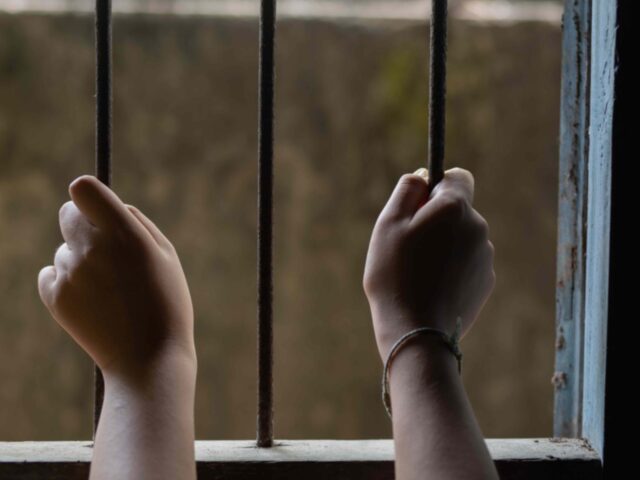More details are emerging about the harsh conditions in which Hamas kept Israeli hostages, including children and the elderly.
As Breitbart News reported Sunday, one of the cousins of a released hostage told the media Sunday that food was scarce, that the hostages had to sleep on plastic benches, and that they had to wait up to two hours before being allowed to use the bathroom. She said:
They were eating, but not regularly, and not all the time. Keren told me that there were days that they didn’t get food, only pita bread or things like that. They lost — Keren and her mom, Ruthie, lost, each one of them, around, between six to eight kilos, and they are not that tall. They ate a lot of rice and bread …. I know that she told me that when they wanted to go to the bathroom, how they had to knock on the door, and sometimes, and then they were waiting [for] it to be opened, and sometimes they were waiting one and-a-half hours, or two hours, to go to the bathroom. And they told me that they were sleeping on [a] kind of benches in a reception room, that you have three chairs combined as a bench, they had to sleep on that kind of, to spend their night on the bench.
New details have emerged, via Israeli news website Ynet, suggesting the hostages suffered from constipation due to the food they were given; that they were given one sleeping pill daily to share between them; and that they were not allowed to bathe.
Ynet reported on the experience of one elderly female hostage, citing medical staff:
She said that they were not abused, but that they did not receive medicine and that their diet was difficult. The food was mainly based on rice, canned chickpeas and pulses, sometimes there was also salty cheese with pita but nothing beyond that. No fruits, no vegetables, no eggs. She is a woman older and she lost 12 kg. From the conversation I understood that she and everyone else tried to avoid too much food, because the beans and hummus made them constipated. They are not used to such amounts on a daily basis. They were afraid of getting into trouble and that they wouldn’t be able to take care of themselves, and they didn’t want to be given pills for stomach aches. Therefore they made sure to drink a lot. they had water.
…
She said that they did not bathe for 50 days, and made sure to clean their armpits. This is what was possible, because they did not have enough water. It’s sad, sad to hear that. In the first days, it was hard for them to sleep at night because of the tension and fears, and that’s clear. And then they got or the Hamasniks gave them a sleeping pill, and they divided the pill into four pieces to allow as many people as possible to sleep.
…
Sleep was difficult. They slept in beds that were next to each other, and it was stressful. They washed their clothes inside the room and the things had to be dried which was difficult. They were not given light. They were only given [light] for two hours. Even when they asked for a pencil or a pen to write in order to pass the time, the Hamasniks did not agree because they were afraid that they would convey information by writing, so they were without television and without reading, and thus passed the time only by talking to each other.
More details have begun to trickle out, though the hostages have been reluctant to speak directly to the media, possibly because doing so might endanger the Israeli hostages still in Gaza, including some of their own close relatives.
Joel B. Pollak is Senior Editor-at-Large at Breitbart News and the host of Breitbart News Sunday on Sirius XM Patriot on Sunday evenings from 7 p.m. to 10 p.m. ET (4 p.m. to 7 p.m. PT). He is the author of the new biography, Rhoda: ‘Comrade Kadalie, You Are Out of Order’. He is also the author of the recent e-book, Neither Free nor Fair: The 2020 U.S. Presidential Election. He is a winner of the 2018 Robert Novak Journalism Alumni Fellowship. Follow him on Twitter at @joelpollak.

COMMENTS
Please let us know if you're having issues with commenting.